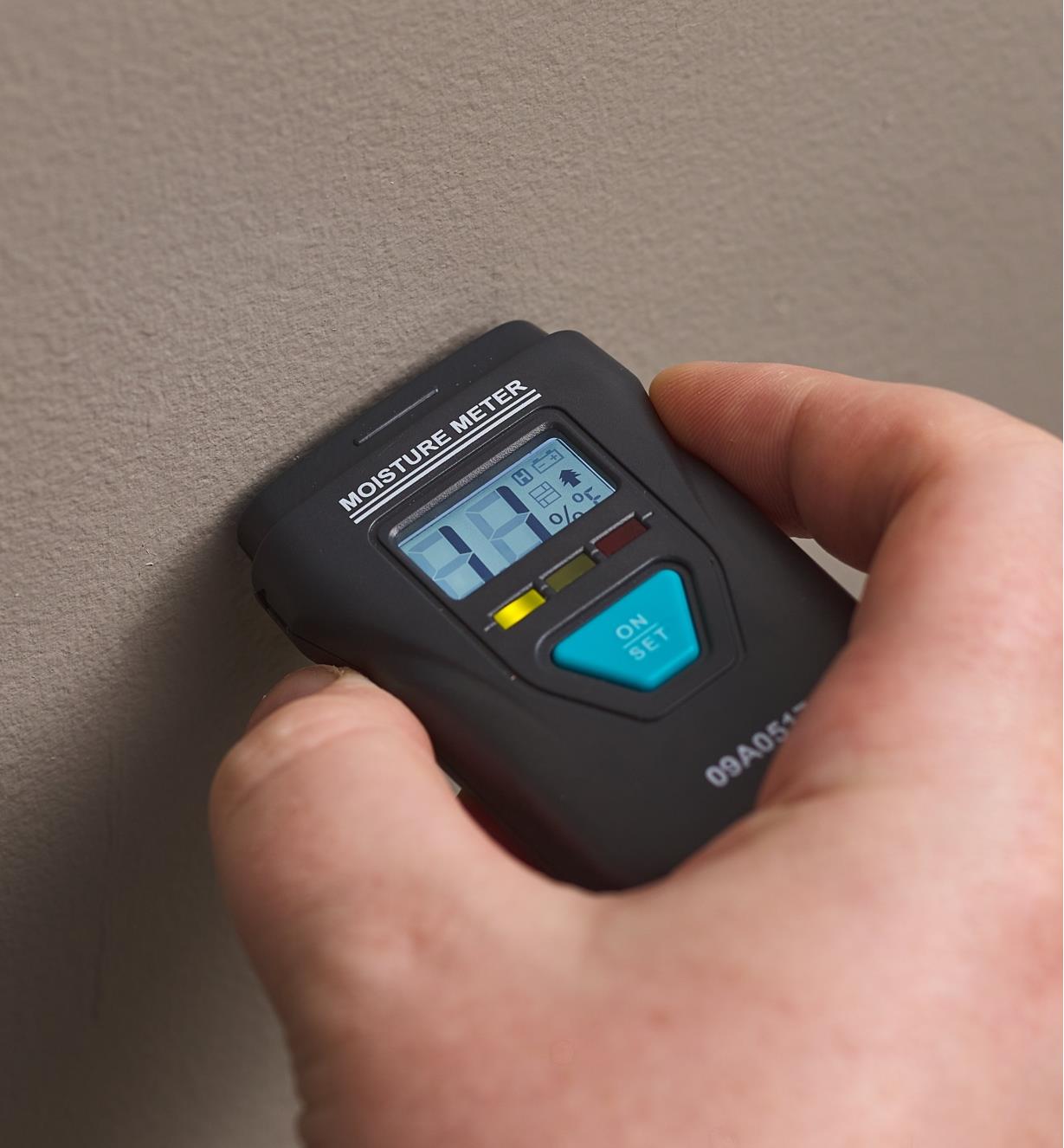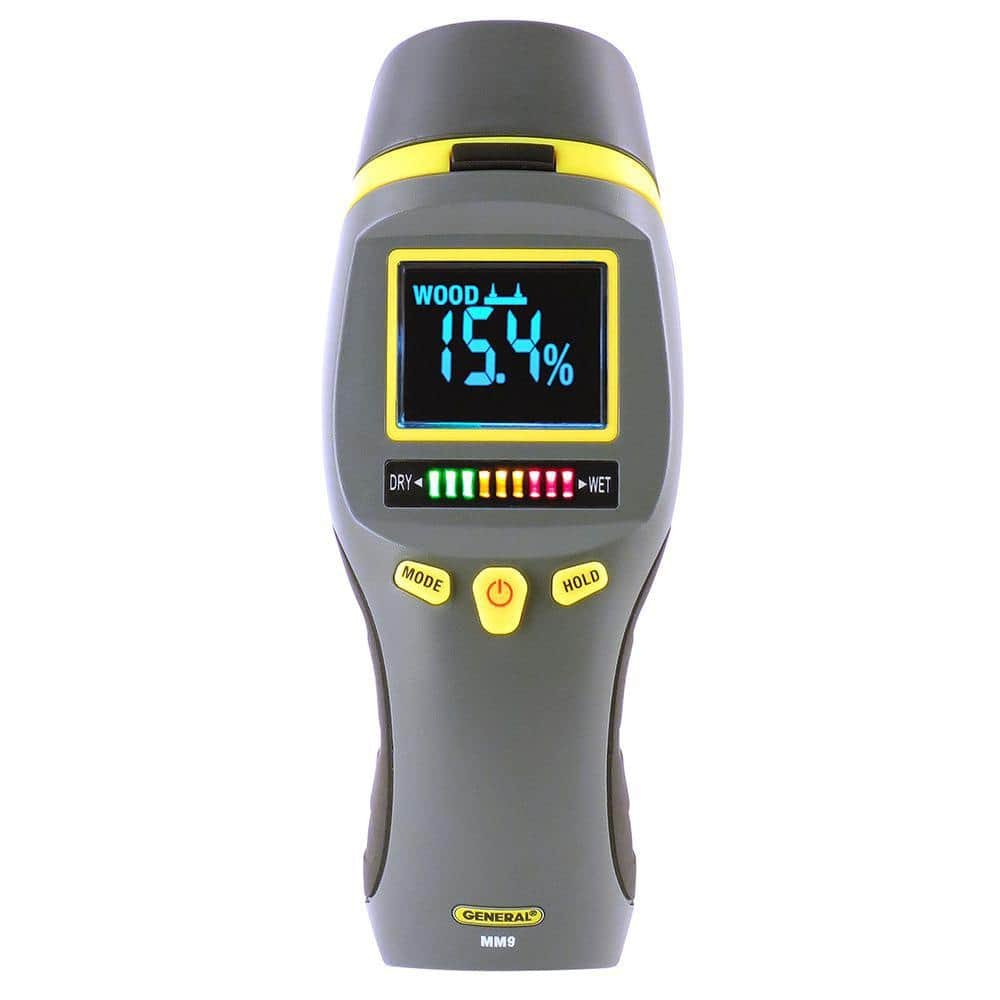Leading 10 Benefits of Using a Moisture Meter for Definite Measurements in your house
Leading 10 Benefits of Using a Moisture Meter for Definite Measurements in your house
Blog Article
The Ultimate Overview to Wetness Meters: A Comprehensive Summary and Just How They Can Save You Cash
In the world of building upkeep, building and construction, and different markets, the importance of properly determining moisture degrees can not be overstated. Dampness meters act as vital devices in detecting and checking moisture material in products, aiding in protecting against expensive problems and making sure the high quality of products. Recognizing the subtleties of different kinds of moisture meters, their applications, and the prospective cost-saving advantages they use can be a game-changer for companies and experts alike. Uncovering just how these tools can not only streamline procedures however additionally contribute to financial savings is a journey worth getting started on.
Sorts Of Wetness Meters
One common kind is the pin-type dampness meter, which determines the electric resistance in between 2 pins inserted into a material. Pinless dampness meters, on the other hand, usage electro-magnetic sensor plates to check a larger area without causing damage to the material's surface area.

In addition, there are also specialized moisture meters created for specific products like grain, hay, or soil. These meters give precise wetness readings tailored to the one-of-a-kind residential properties of the product being checked. Infrared dampness meters measure the thermal properties of a material to determine its wetness content non-invasively, making them beneficial for applications where pin or pinless meters may not be ideal. Recognizing the various kinds of dampness meters offered can help sectors select the most ideal tool for their details wetness measurement demands.

Advantages of Making Use Of Moisture Meters
Moisture meters use very useful benefits in accurately keeping an eye on and evaluating dampness levels in varied products and atmospheres. One of the key benefits of making use of dampness meters is the prevention of prospective damages caused by excess dampness.
Additionally, utilizing dampness meters can lead to raised energy effectiveness. In agricultural setups, wetness meters play an essential duty in optimizing plant returns by enabling farmers to check soil dampness degrees and make notified watering decisions.
How to Choose the Right Moisture Meter
When picking a moisture meter, it's necessary to make sure that the meter is suitable for the certain material you will be screening. Various products have varying electric residential properties that can affect dampness analyses, so picking a meter made for your material is important for exact outcomes. By very carefully assessing these elements, you can pick a dampness meter that satisfies your demands and offers precise wetness dimensions for your jobs.
Correct Methods for Dampness Meter Use

Price Financial Savings Via Dampness Meter Applications
Just how can the calculated utilization of moisture meters lead to navigate to this website substantial price savings across various sectors? Wetness meters play a crucial role in price financial savings by stopping potential damage and making certain quality assurance in different markets. In the agriculture industry, dampness meters aid in determining the optimum time for gathering crops, preventing over-drying or excess moisture that can influence the final item's high quality. This accurate monitoring helps farmers stay clear of unnecessary losses and maximize their yield.
Likewise, in construction, dampness meters help protect against costly problems by spotting wetness degrees in building materials, such as timber or concrete, which can result in architectural issues if not resolved promptly. By determining trouble locations go now early, specialists can take restorative actions to avoid substantial repair services or substitutes, eventually conserving money and time.
Furthermore, in the food processing industry, wetness meters are crucial for keeping an eye on item quality and ensuring conformity with safety guidelines. By properly gauging dampness web content in food items, suppliers can avoid putridity, keep freshness, and decrease waste, resulting in significant expense savings. On the whole, the critical application of dampness meters is an important financial investment that can bring about substantial expense decreases and boosted performance across numerous markets.
Final Thought
In conclusion, wetness meters are useful devices for discovering and gauging wetness levels in numerous products. By utilizing the best wetness meter and following correct techniques, users can effectively protect against costly damages created by excess moisture.
Dampness meters serve as important tools in identifying and checking moisture web content in materials, assisting in preventing pricey damages and making sure the high quality of products. Infrared dampness meters gauge the thermal homes of a material to determine its dampness web content non-invasively, making them useful for original site applications where pin or pinless meters might not be ideal.Moisture meters offer vital advantages in accurately keeping track of and evaluating wetness degrees in diverse products and settings. In farming setups, dampness meters play a crucial role in enhancing plant yields by allowing farmers to monitor soil moisture levels and make informed watering choices.In verdict, wetness meters are important tools for finding and measuring dampness degrees in various materials.
Report this page